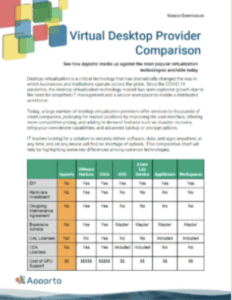VPN vs. HTTPS: What’s the difference?
In today’s digital world, where online security and privacy are paramount, you have likely come across the terms VPN and HTTPS. While both serve to protect your data, they operate in different ways and offer distinctive benefits. In this article, we will delve into the basics of VPN and HTTPS, examine their key differences, weigh their pros and cons, and help you make an informed decision on when to use each.
Understanding the Basics
What is a VPN?
A VPN, also known as a Virtual Private Network, is a technology that establishes a secure connection between your device and the internet. This connection is encrypted, meaning your data is encoded and cannot be intercepted or accessed by unauthorized individuals.
By routing your internet traffic through a VPN server, your IP address is masked, and your online activities become anonymous. This makes it incredibly difficult for anyone to track your browsing habits or compromise your personal information.
Furthermore, VPNs are widely used by individuals looking to bypass geographical restrictions on content. For example, you can access region-locked streaming services by connecting to a VPN server in a different country. This allows you to enjoy a broader range of entertainment options that may not be available in your current location.
What is HTTPS?
HTTPS, or HyperText Transfer Protocol Secure, is an extension of the standard HTTP protocol used for website communication. It adds an additional layer of security by encrypting the data exchanged between your browser and the web server.
When accessing a website that uses HTTPS, you will notice a padlock icon in your browser’s address bar. This indicates that the connection is secure, and the website has an SSL (Secure Sockets Layer) certificate. Any data you transmit, such as passwords or credit card information, is protected from prying eyes.
Moreover, HTTPS not only secures the data in transit but also helps verify the authenticity of the website you are visiting. This is crucial in preventing phishing attacks where malicious actors create fake websites to steal sensitive information from unsuspecting users. By ensuring the website has a valid SSL certificate, you can have more confidence in the legitimacy of the site.
The Key Differences Between VPN and HTTPS
Functionality and Purpose
While both VPN and HTTPS encrypt your data, they serve different purposes. A VPN is primarily used to create a secure connection between your device and the internet. It masks your IP address and provides anonymity for your online activities. This means that not only is your data encrypted, but your online identity is also protected, making it difficult for anyone to track your online behavior.
On the other hand, HTTPS ensures that the data transmitted between your browser and a specific website remains encrypted and secure. It adds an extra layer of protection, particularly when you are entering sensitive information such as passwords or credit card details on a website. With HTTPS, you can trust that the information you send and receive is encrypted and cannot be easily intercepted by malicious actors.
Security Measures
VPN technology uses robust encryption protocols, such as OpenVPN or IPSec, to secure your internet connection. This prevents eavesdropping and protects your data from potential hackers or prying eyes on public Wi-Fi networks. Additionally, VPNs provide features like DNS leak protection and kill switch, which further enhance your online security.
HTTPS, on the other hand, relies on SSL certificates to encrypt the data transmitted between your browser and the website you are visiting. These certificates ensure that the website you are connecting to is authentic and that the data exchanged is encrypted. This helps protect against man-in-the-middle attacks and ensures the integrity of the data being transmitted.
While both VPN and HTTPS offer encryption, VPNs provide a higher level of security since all of your internet traffic is encrypted and protected, including data transmitted within apps or other non-web-based services. This means that even if you are using a public Wi-Fi network or accessing the internet from a potentially insecure location, your data remains secure and private.
Speed and Performance
When it comes to speed, VPNs may introduce a slight delay due to the additional encryption and rerouting of your internet traffic. However, modern VPN providers have made significant improvements in terms of speed and performance, utilizing optimized servers and protocols. This ensures that you can enjoy a secure browsing experience without experiencing significant slowdowns.
HTTPS, on the other hand, adds minimal overhead to the communication between your browser and the web server. In most cases, the impact on speed is negligible, and you can enjoy a secure browsing experience without sacrificing performance. This is particularly important for websites that handle sensitive information, as the slight decrease in speed is outweighed by the increased security and protection provided by HTTPS.
In conclusion, while both VPN and HTTPS offer encryption and security, they have different functionalities and purposes. VPNs provide a comprehensive solution for securing your entire internet connection, while HTTPS focuses on securing the communication between your browser and specific websites. By understanding these key differences, you can make informed decisions about which security measures to implement based on your specific needs and requirements.
Virtual Desktop Provider Comparison
Pros and Cons of Using VPN
Virtual Private Networks (VPNs) offer a range of benefits and drawbacks to users, making them a popular tool for ensuring online security and privacy. Let’s delve deeper into the advantages and disadvantages of using a VPN.
Advantages of VPN
- Enhanced security and privacy: VPNs encrypt your internet connection, making it more secure and protecting your data from potential cyber threats.
- Anonymous browsing: By masking your IP address, VPNs allow you to browse the web anonymously, keeping your online activities private.
- Bypassing geo-restrictions: VPNs enable you to access region-locked content by changing your virtual location, giving you more freedom to explore the internet.
- Protection on public Wi-Fi networks: When connected to public Wi-Fi hotspots, VPNs add an extra layer of security, safeguarding your sensitive information from hackers.
Moreover, VPNs can also be used for remote work purposes, allowing employees to securely access company resources from anywhere in the world. This flexibility and security are especially crucial in today’s digital age, where remote work is becoming increasingly common.
Disadvantages of VPN
- Potential speed decrease: Due to the encryption process, using a VPN can sometimes lead to a decrease in internet speed, which may affect activities like streaming or online gaming.
- Reputable VPN providers may come at a cost: While there are free VPN services available, premium VPN providers often charge a subscription fee for their reliable and secure services.
- Some websites or services may block VPN usage: In an effort to prevent unauthorized access or protect their content, certain websites or streaming platforms may block users who are using VPNs.
Pros and Cons of Using HTTPS
Advantages of HTTPS
- Secure communication between your browser and websites
- Protection against data interception
- Trustworthy indication of a website’s security
One of the key advantages of using HTTPS is the encryption it provides for data transmitted between your browser and the websites you visit. This encryption helps protect sensitive information such as login credentials, personal details, and financial data from being intercepted by malicious third parties. By ensuring that data remains confidential during transit, HTTPS plays a crucial role in maintaining the security and integrity of online communications.
Disadvantages of HTTPS
- Does not provide overall anonymity or privacy
- Does not protect data transmitted outside the browser
- Relies on individual websites implementing HTTPS
While HTTPS offers significant security benefits, it is important to note that it does not guarantee complete anonymity or privacy when browsing the web. Although the encryption provided by HTTPS helps secure the connection between your browser and websites, it does not prevent tracking or monitoring of your online activities. Additionally, HTTPS only protects data while it is in transit between your browser and the web server, meaning that information stored on your device or transmitted through other means may still be vulnerable to unauthorized access.
Choosing Between VPN and HTTPS
When to Use VPN
VPN usage is ideal when you want to establish a secure and private connection to the internet. If you frequently use public Wi-Fi networks or want to keep your online activities anonymous, a VPN is a valuable tool. VPNs are also crucial for bypassing geo-restrictions, allowing you to access content that may be blocked in your region.
Moreover, VPNs offer an added layer of security by masking your IP address, making it harder for third parties to track your online movements. This feature is particularly beneficial for individuals concerned about their online privacy and data security.
When to Use HTTPS
HTTPS should be utilized whenever you access websites that handle sensitive information, such as personal details or financial data. It ensures that your communication with the website remains encrypted and safeguards your information from potential attackers.
Furthermore, HTTPS helps establish the authenticity of websites by verifying their identity through digital certificates. This verification process adds another level of trust and security for users, reducing the risk of falling victim to phishing attacks or fraudulent websites.
In conclusion, while both VPN and HTTPS play vital roles in securing your online activities, they serve different purposes. VPNs excel in providing overall security and privacy by encrypting all your internet traffic, while HTTPS ensures secure communication between your browser and specific websites. Understanding the key differences and use cases of VPN and HTTPS will help you make an informed decision when it comes to protecting your online presence.
Remember, whether you choose to use a VPN or rely on HTTPS, your online security should always be a top priority. Stay informed, take necessary precautions, and enjoy a safer browsing experience on the internet.


